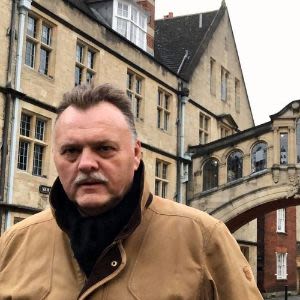






The Sanctuary Byron Bay
Verified Center
This provider's information has been quality-checked by Recovery.com's Research Team for accuracy and completeness, including center verification through appropriate third-party organizations.
Treatment Focus
This center treats substance use disorders and mental health conditions. You'll receive individualized care catered to your unique situation and diagnosis, learn practical skills for recovery, and make new connections in a restorative environment.
Primary Level of Care
Offering intensive care with 24/7 monitoring, residential treatment is typically 30 days and can cover multiple levels of care. Length can range from 14 to 90 days typically.
Treatment Focus
This center treats substance use disorders and mental health conditions. You'll receive individualized care catered to your unique situation and diagnosis, learn practical skills for recovery, and make new connections in a restorative environment.
Primary Level of Care
Offering intensive care with 24/7 monitoring, residential treatment is typically 30 days and can cover multiple levels of care. Length can range from 14 to 90 days typically.
Private Pay
You pay directly for treatment out of pocket. This approach can offer enhanced privacy and flexibility, without involving insurance. Exact costs vary based on program and length of stay. Contact the center for specific details.
The Sanctuary Byron Bay
The Sanctuary Byron Bay
About The Sanctuary Byron Bay
The Sanctuary is a luxury, private therapeutic retreat for clients seeking confidentiality and nurturing care. As pioneers in the luxury rehabilitation sector, The Sanctuary has helped people around the world take control of their lives and shape their future with confidence, contentment, and focus. The Sanctuary Byron Bay delivers 1-on-1 treatment, with no group therapy or shared facilities. Clients reside in a private, 5-star home with expert care staff on site. The Sanctuary treat a broad range of complex conditions, and their holistic approach combines evidence-based complementary therapies with traditional clinical medicine.
Highly Individualized Care
The Sanctuary Byron Bay offers medical care, psychotherapy, and complementary therapies like acupuncture and remedial massage therapy. Clients can also enjoy yoga, meditation, personal fitness training, martial arts, pilates, art therapy, music and dance lessons, and recreational pursuits such as hiking and surfing. Additional modalities, such as dentistry and optometry, can also be integrated into the program. The Sanctuary Byron Bay strives to give each client the best experience possible, customizing each step of treatment to meet their needs and preferences. Aftercare efforts begin during residential treatment. The Sanctuary connects with clients’ home providers to help ensure a seamless transition out of treatment at The Sanctuary.
A Full Treatment Team Dedicated to Success
The Sanctuary Byron Bay coordinates treatment with an integrated team for each client. They have extensive experience in dealing with complexity and achieving quality outcomes. Clients have 24/7 care in their private home, with teams that consist of a gourmet chef, personal trainer, massage therapist, psychologist, doctor, nursing staff, personal carers, recreational therapists, and more.
Rest And Recover in Private Luxury
The Sanctuary is located in the beautiful resort town of Byron Bay, Australia. Byron Bay is known for its pristine beaches, sub-tropical rainforest, and majestic mountain ranges. During treatment, clients reside in private, non-disclosed homes with luxurious furnishings. The Sanctuary schedules treatment for a sense of routine, but plenty of free time and outside excursions give clients variety and adventure.
Coordinated Care
The Sanctuary Byron Bay coordinates care at each step of recovery. If agreed upon, they collaborate with clients’ previous treatment providers to offer highly relevant care. This collaborative model helps ensure each aspect of clients’ health is addressed, understood, and ultimately healed.
Center Overview
Treatment Focus
This center treats substance use disorders and mental health conditions. You'll receive individualized care catered to your unique situation and diagnosis, learn practical skills for recovery, and make new connections in a restorative environment.

Pricing and Program Length
Estimated Center Costs
The cost listed here ($154,000 AUD/14 nights), is an estimate of program cost. Center price can vary based on program and length of stay. Contact the center for more information. Recovery.com strives for price transparency so you can make an informed decision.
Luxury rehab centers offer a unique blend of luxurious amenities and high-quality treatment. From private suites to gourmet dining, personal trainers to spa treatments, these facilities provide a high level of comfort and discretion.

Meet Your Care Team

Dr. Laurenne See
Director
D Clin Psych, B Psych Hons.

Dr. Dan Phyhtian
Clinical Director
FRACGP, MRCGP, MBChB, BSc Neuro

Dr. Zoë Fletcher
Senior Medical Doctor
FRACGP, nMRCGP, MBBS, BSc (Hons), DRCOG, DFSRH

James Norman-Hicks
Director of Psychology
B.Psych, MSocW

Abelina Wolf
Senior Psychologist
M Psych, Grad Dip Psych, B Psych

Caroline Dwyer
Director of Nursing
B Nursing (RN), M.Health Sc. (Sexual Health), M. Nursing (Nurse Practitioner), M.Med - Hons (MFMH)

Stacey Deans
Registered Nurse
BNursing

Steven Racki
Physiotherapist
BPhty, BBioMed

Alex Yates
Acupuncturist
BAcu, Dip Acu

Lucy Arnott
Art Therapist
Dip Art Therapy, Dip Trans Couns, Dip Vis Art

Fiona Smith
Pilates Instructor

Trent Gardiner
Client Care
Dual Dip Com Serv (Addiction & Mental Health)

Amber Rowe
Director of Culinary Services
MEd (Bio&Health), BHlthSc (Nutr&Diet)

Kate Leggett
Administration Manager

Dr. Chris Lack
Pre Admission Medical Consultant
FANZCA, FACRRM, MPH & TM, MBBS Hons, B.Med (TCM), BA

David B. Green
Vice Chairman - The Sanctuary World

Dr. Rob Walsh
CEO - The Sanctuary World
FACRRM, MBBS Hons (USyd), MA, BA Hons




Levels of Care






Your Care Options
Specializations
Anxiety
Anxiety is a common mental health condition that can include excessive worry, panic attacks, physical tension, and increased blood pressure.
Depression
Symptoms of depression may include fatigue, a sense of numbness, and loss of interest in activities. This condition can range from mild to severe.
Executives
Executive treatment programs typically directly support the needs of people who manage businesses and may provide flexible schedules and office space to allow work during treatment.
Trauma
Some traumatic events are so disturbing that they cause long-term mental health problems. Those ongoing issues can also be referred to as "trauma."
Who We Treat
Executives
Executive treatment programs typically directly support the needs of people who manage businesses and may provide flexible schedules and office space to allow work during treatment.
Men and Women
Men and women attend treatment for addiction in a co-ed setting, going to therapy groups together to share experiences, struggles, and successes.
Mild Disabilities
Adults with mild physical or intellectual disabilities receive treatment catered to their specific needs in a safe and clinically supportive environment.
Professionals
Busy, high-ranking professionals get the personalized treatment they need with greater accommodations for work, privacy, and outside communication.
Approaches
Evidence-Based
A combination of scientifically rooted therapies and treatments make up evidence-based care, defined by their measured and proven results.
Holistic
A non-medicinal, wellness-focused approach that aims to align the mind, body, and spirit for deep and lasting healing.
One-to-One
Patients work with their treatment team members on a 1-on-1 basis, keeping their journey and treatment fully private and personalized.
Therapies
1-on-1 Counseling
Patient and therapist meet 1-on-1 to work through difficult emotions and behavioral challenges in a personal, private setting.
Art Therapy
Visual art invites patients to examine the emotions within their work, focusing on the process of creativity and its gentle therapeutic power.
Dance Therapy
This experiential therapy uses dance to improve body awareness, physical health, and social skills.
Equine Therapy
Guided interactions with trained horses, their handler, and a therapist can help patients improve their self-esteem, trust, empathy, and social skills.
Family Therapy
Family therapy addresses group dynamics within a family system, with a focus on improving communication and interrupting unhealthy relationship patterns.
Massage Therapy
Massage therapy relieves physical and emotional tension, reduces pain, promotes relaxation, and improves emotion regulation.
Mindfulness-Based Cognitive Therapy
MBCT combines mindfulness practices—like meditation—with cognitive therapy techniques to help patients work through negative thought patterns.
Conditions We Treat
Pornography Addiction
A person with a porn addiction is emotionally dependent on pornography to the point that it interferes with their daily life and relationships.
Schizophrenia
Schizophrenia is a serious mental health condition that causes hallucinations, delusions, and disordered thinking.
Grief and Loss
Grief is a natural reaction to loss, but severe grief can interfere with your ability to function. You can get treatment for this condition.
Personality Disorders
Personality disorders destabilize the way a person thinks, feels, and behaves. If untreated, they can undermine relationships and lead to severe distress.
ADHD, ADD
ADHD is a common mental health condition caused by dopamine imbalance. Common symptoms include inattention, hyperactivitiy, and impulsivity.
Anger
Although anger itself isn't a disorder, it can get out of hand. If this feeling interferes with your relationships and daily functioning, treatment can help.
Anxiety
Anxiety is a common mental health condition that can include excessive worry, panic attacks, physical tension, and increased blood pressure.
Bipolar
This mental health condition is characterized by extreme mood swings between depression, mania, and remission.
Substances We Treat
Alcohol
Using alcohol as a coping mechanism, or drinking excessively throughout the week, signals an alcohol use disorder.
Benzodiazepines
Benzodiazepines are prescribed to treat anxiety and sleep issues. They are highly habit forming, and their abuse can cause mood changes and poor judgement.
Chronic Relapse
Consistent relapse occurs repeatedly, after partial recovery from addiction. This condition requires long-term treatment.
Co-Occurring Disorders
A person with multiple mental health diagnoses, such as addiction and depression, has co-occurring disorders also called dual diagnosis.
Cocaine
Cocaine is a stimulant with euphoric effects. Agitation, muscle ticks, psychosis, and heart issues are common symptoms of cocaine abuse.
Drug Addiction
Drug addiction is the excessive and repetitive use of substances, despite harmful consequences to a person's life, health, and relationships.
Ecstasy
Ecstasy is a stimulant that causes intense euphoria and heightened awareness. Abuse of this drug can trigger depression, insomnia, and memory problems.
Heroin
Heroin is a highly addictive and illegal opioid. It can cause insomnia, collapsed veins, heart issues, and additional mental health issues.
Psychedelics
Hallucinogenic drugs—like LSD—cause euphoria and increased sensory experiences. When abused, they can lead to depression and psychosis.
Languages
Aftercare
Care Designed for Your Needs
Personal Amenities
Amenities
Special Considerations
Pet Friendly
For greater comfort and healing, pet-friendly treatment centers welcome dogs and animal companions to stay with their owners while they attend treatment.
Executive Program
Addiction and mental health treatment for executives typically involves high discretion, greater technology access, and more private, 1-on-1 care.
Activities
Yoga
Yoga is both a physical and spiritual practice. It includes a flow of movement, breathing techniques, and meditation.
Off-Site Activities
Off-Site Amenities






